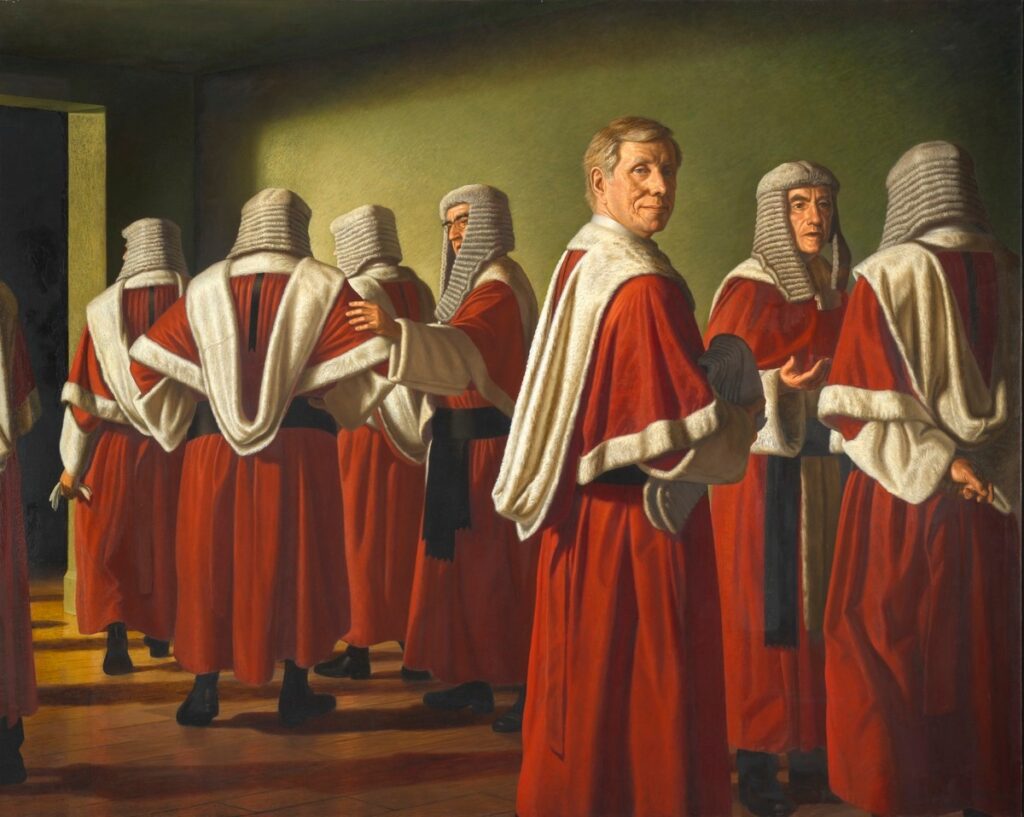The Erosion of Judicial Integrity in Australia
The Australian judiciary, once a bastion of impartiality and decorum, now languishes under a pall of misconduct that tarnishes its hallowed institutions. The erosion of public trust in the rule of law is not merely a consequence of individual failings but a symptom of a deeper, structural malaise.
Australia’s justice system, by all accounts, is shackled to a collegium framework that has gutted the checks and balances essential to any civilized society. It is a system rife with nepotism, skewed by biases of race, gender, and religion, and engineered to favor a privileged elite: graduates of private schools, the progeny of judges and politicians, predominantly white, Anglo-Saxon, and male.
The women’s rights movement has, over decades, clawed through some of these barriers, though critics argue this progress owes much to a handful of privileged women joining the fray against the old boys’ club. Yet, the legal profession remains a self-serving, self-regulating fortress of entitlement, unaccountable to any external authority. It elevates those of the same social pedigree, private-educated, university-polished, and pedigreed, while governments, complicit or cowed, turn a blind eye.

This entrenched elitism manifests in the comportment of certain judges, particularly in jurisdictions such as Queensland and New South Wales, where judicial conduct falls grievously short of the dignity and courtesy demanded of their office. Rather than upholding the sanctity of the courtroom, these jurists engage in behaviors that constitute a profound breach of judicial propriety: intimidating legal practitioners and witnesses with acerbic remarks, exhibiting blatant favoritism toward select counsel while denigrating others, and indulging in conduct that flouts the principles of fairness and impartiality. Such actions erode the foundational trust in the judiciary as an impartial arbiter of justice.
POLITICAL APPOINTMENTS-FAVOURITSM- ILLEGAL PHONE TAPPING AND IMPUNITY
The politicization of judicial appointments has exacerbated this crisis, entrenching a culture of favoritism and impunity. Historical examples, ranging from as early the Labor Party’s appointments of Evatt, McTiernan, and Murphy, contrasted with the selection of Garfield Barwick, illustrate the perils of partisan influence. While Barwick largely evaded allegations of criminality, figures like Lionel Murphy and Owen Dixon faced posthumous scrutiny for their ethical lapses.
More recently, the brief and tumultuous tenure of Queensland’s Chief Justice Tim Carmody was marred by a vitriolic campaign of selective outrage, orchestrated by a self-righteous coterie of privileged lawyers and judges. This clique’s hypocrisy was epitomized by Justice John Byrne, who covertly recorded and leaked a private conversation with Carmody, weaponizing it to inflame public disdain. Such actions, far from anomalous, expose a judiciary steeped in duplicity and unaccountable to external oversight.

FORMER CHIEF JUSTICE OF QUEENSLAND TIM CARMODY (PICTURED ABOVE)
Equally egregious is the conduct of former Justice Margaret McMurdo, whose leaked correspondence with Peter Davis, now a Supreme Court judge himself, brazenly violated the tenets of judicial independence and decorum.
McMurdo’s disdain for Carmody, a man of humbler origins, contrasts starkly with her silence regarding the transgressions of luminaries like Dyson Heydon, whose sexual harassment allegations at the High Court were known to former Chief Justice Murray Gleeson and Justice Michael McHugh, though not within her jurisdiction were nontheless people within her profession. Yet hers and her fellow judge’s silence over the affair met with their tacit complicity. The High Court and its judges fall within the purview and influence of every court in Australia. After all these are the final arbiters of their often flawed decisions made in the lower courts. Another anomaly in the fictitous doctrine of judicial independence.

FORMER QUEENSLAND COURT OF APPEAL JUDGE MARGARET McMURDO
Heydon’s misconduct is everyone’s business. The High Court of Australia is Australia’s apex court. It’s decisions binds the entire legal system of Australia. After all McMurdo and judges like her often quote and accept arguments and quotes from the decisions and reasoning of the likes of Dyson, Gleeson, McHugh, Kirkby and Owen Dixon. So where then is her’s and Peter Davis’s outrage over their misconduct and misfesance in the name of the law and the constitution?
McMurdo’s own indiscretions, and failings include allegations of divulging confidential details of Victoria’s Gobbo inquiry to her Queensland legal confidants, an elitist circle notorious for its porous discretion, further underscoring the judiciary’s lack of accountability. Much like what she is known and documented to have unapologetically done in the Carmody matter.
ETHICS-DECORUM-JUDICIAL PROPRIETY AND EXCEPTIONALISM: A QUESTION OF INTERPRETATION
The judiciary’s ethical shortcomings are exacerbated by other individuals like Justice Wilson and former Justice David Jackson, whose undisclosed connections and leaks to select members of the legal professionals, along with improper communications with lawyers they know socially or personally discussing cases before their courts, reveal a troubling pattern of removal misconduct.
The tragic case of the late Justice Guy Andrews, whose misconduct might have been addressed less publicly and tragically had complaints to the Attorney-General about his misconduct been acted upon earlier. This matter in particular underscores the consequences of governmental inaction. Similarly, the Federal Court’s disgrace, exemplified by the gross misconduct of Justices Guy Andrews and Salvatore Vasta, reveals a state and federal governments paralyzed by their reluctance to confront a flawed and self-regulating legal profession and judiciary and uphold constitutional integrity throughout Australia.
GUY ANDREWS A CRUDE EXAMPLE OF JUDICIAL MISCONDUCT
Guy Andrews stood accused, of amongst other things, of a particularly squalid form of quid pro quo: the systematic extraction and bestowal of ‘personal favours’ in exchange for professional advantage. Among the allegations that surfaced in a formal complaint was an intimate relationship with a former Legal Aid barrister practising in Brisbane. That complaint, though duly lodged, was allowed to gather dust; neither the Chief Justice nor the Attorney-General of the day saw fit to pursue it.
Contemporaries further attested that Andrews openly bragged of having seduced the wives and partners of legal colleagues and a Federal Magistrate, wielding these conquests as instruments of deliberate humiliation. The full catalogue of claimed transgressions was never publicly ventilated, for in 2021 Andrews pre-empted any reckoning by taking his own life, thereby evading the scrutiny, and, perhaps, the retribution, that might otherwise have followed. The practice although not openly ventilated is by some accounts still prevalent in New South Wales and Queensland.
Even esteemed judges like the controversial Michael Lee and Michael Kirby have, through their public endorsements of Dyson Heydon’s academic work, implicitly condoned his egregious behavior, thereby undermining the principles of judicial propriety, judicial independencce, the separation of powers, and the rule of law. This pervasive culture of judicial misconduct, marked by favoritism, hypocrisy, and selective outrage, signals a profound failure of governance.
THE STENCH OF JUDICIAL ABUSE AND THE SELF REGULATED LEGAL PROFESSION: A ROYAL COMMISSION OR SELF DESTRUCTION?
The absence of robust accountability mechanisms has emboldened errant judicial officers, whose actions betray public trust and erode the foundational principles of justice and constitutionality. Far from embodying the ideals of judicial independence, these judges expose a system riddled with self-interest and impunity, demanding urgent governmental intervention to restore the integrity of Australia’s judiciary.
The path forward requires a fundamental restructuring of the judicial framework to dismantle the collegium system and introduce rigorous, independent oversight. Only through such measures can Australia hope to reclaim a judiciary that upholds the principles of fairness, impartiality, and accountability, thereby restoring public confidence in the rule of law.
Governments promises and pious platitudes to tackle crime must begin at the top reflecting the old saying “the fish rots from the head”. If they don’t and fail to attend to it quickly, its not the economy that will bring us down as a nation, but the entrenchment of criminality and corruption at the very top; Our courts and the legal profession.
Stephen Ambrose

